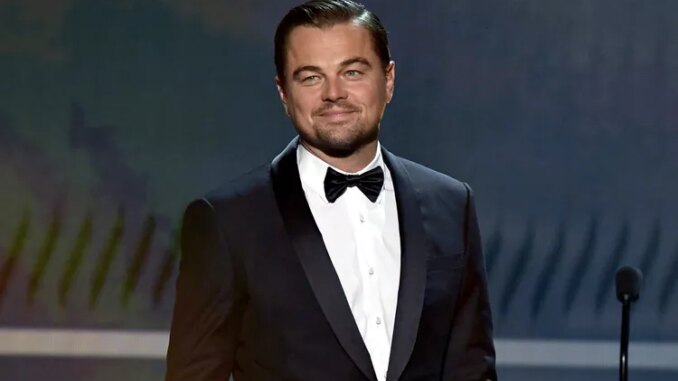
The Unspoken Script: When Leonardo Almost Became Lenny
The name, like a compass point, often guides our earliest steps, a silent, inherited script outlining a nascent identity. But for those destined for the blinding glare of the public eye, a name isn't just a personal identifier; it becomes a brand, a vessel for collective dreams, a soundbite echoing across the globe. It is against this backdrop that Leonardo DiCaprio's recent revelation—that he nearly shed his evocative, artistic birth name for the more pedestrian "Lenny Williams"—becomes not just a charming anecdote, but a poignant illustration of the unseen battles fought in the crucible of ambition, identity, and the relentless machinery of Hollywood.
Imagine the scene: a young Leonardo, likely still imbued with the wide-eyed wonder of a burgeoning talent, sits across from an agent or manager, their seasoned gaze calculating marketability, focus-group appeal, the sound of a name on a marquee. "Leonardo DiCaprio," they might have mused, the syllables rolling, perhaps a touch too exotic, too European, too much for the mainstream American audiences of the early 90s. The industry, ever keen to smooth out perceived edges, to sand down anything that might not fit the mold of an accessible leading man, likely offered the seemingly helpful suggestion: "How about Lenny Williams? It's punchy, relatable, easy to remember."
This moment, unearthed in a first-ever podcast interview, is more than mere trivia; it’s a powerful illustration of the invisible pressures that can shape a career and, by extension, a life. It speaks to the tension between inherent identity and external expectation. For a budding actor, eager for a foot in the door, such a suggestion—coming from those with the power to open or close those doors—would have been a formidable challenge. It represents the nascent artist's first brush with the compromise often demanded by commercial success: sacrificing a piece of oneself for the promise of wider acceptance. The near-miss of "Lenny Williams" is a testament to the initial fragility of self-definition in the face of the industry's siren song.
The beauty, and indeed the illustration, lies in the rejection of this proposed change. Whether by youthful intuition, parental guidance, or a stubborn, unconscious declaration of authenticity, DiCaprio held firm. And in that quiet refusal, a future was solidified. The name "Leonardo DiCaprio" now carries the weight of Titanic's epic romance, the troubled genius of The Aviator, the gritty resolve of The Departed, and the raw survival of The Revenant. Could a "Lenny Williams" have commanded the same gravitas, the same artistic resonance? Perhaps, but the very sound of "Leonardo," with its echoes of Renaissance art and a certain European sensibility, seems inextricably linked to the nuanced, often complex characters he would later portray. It became an anchor, grounding his often-intense performances in a sense of enduring artistry.
Moreover, the medium of the podcast itself amplifies the illustrative power of this revelation. Unlike a staged interview or a red-carpet soundbite, a podcast fosters an environment of intimacy and introspection. It allows for a more candid, unvarnished look at the human behind the legend. For a star of DiCaprio's magnitude, who has largely maintained a private persona, opening up in this way signals a comfort with his own journey, a willingness to reflect on the forks in the road that have now, in retrospect, become pivotal. It humanizes the icon, showing that even the most celebrated among us have grappled with questions of identity, marketability, and the sometimes-unseen hand of destiny.
Ultimately, Leonardo DiCaprio's near transformation into "Lenny Williams" is a microcosmic illustration of the broader human journey: the quest for self-definition amidst the cacophony of external advice, the subtle interplay of fate and choice, and the profound impact of holding true to one's core. It reminds us that sometimes, the most significant acts are the quietest—a firm "no" to a well-intentioned suggestion, an insistence on one's own truth. And in the resounding success of the man who remained Leonardo, we find a compelling testament to the enduring power of a name, and the even greater power of remaining true to the person it signifies.